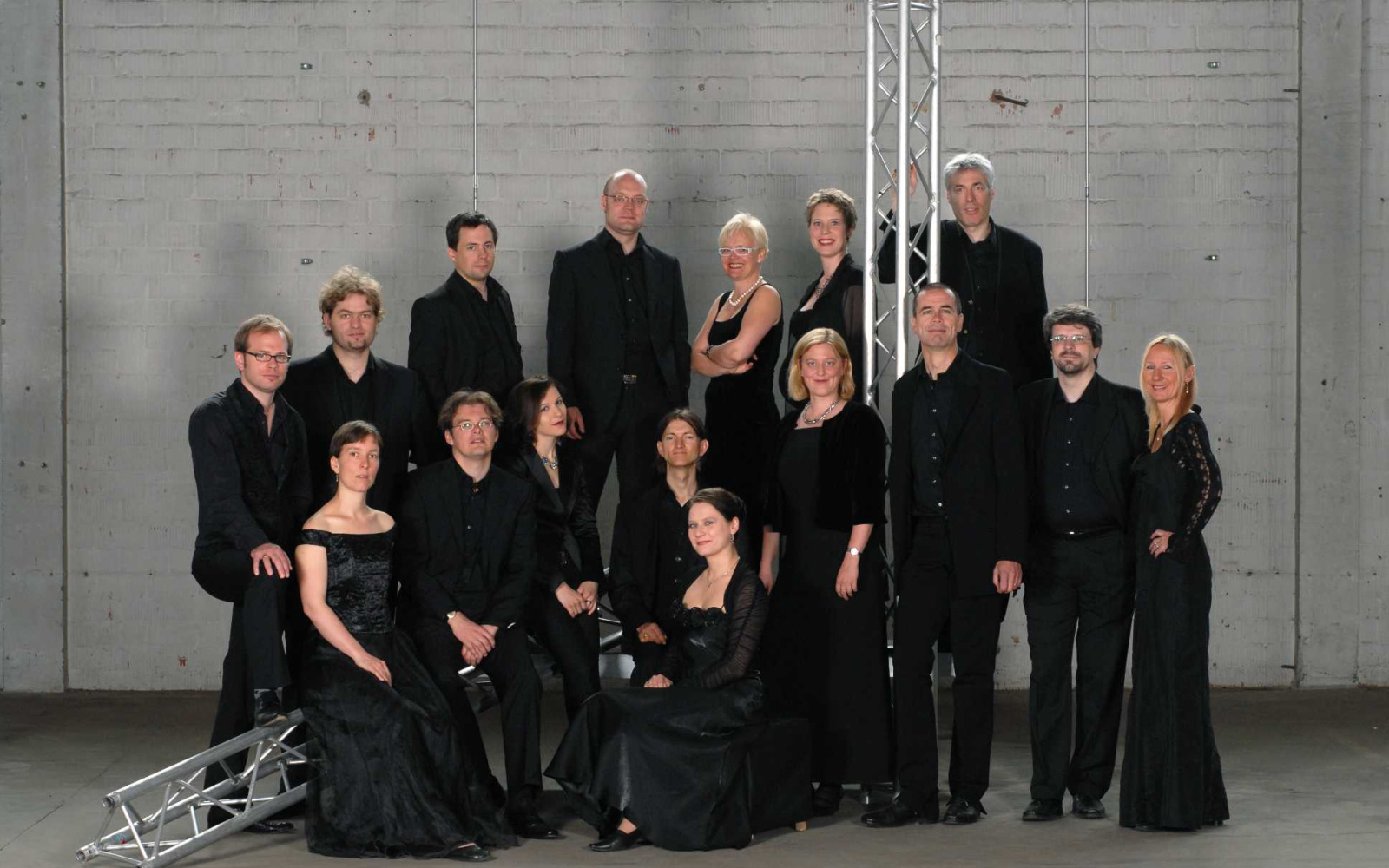- Event
- Concert
Gérard Grisey: Les Chants de l'Amour
Tue, August 26, 2014 8:00 pm CEST
The vocal ensemble SCHOLA HEIDELBERG performs the piece »Les Chants de l’Amour«, by Gérard Grisey at the ZKM, who envisioned something other than the traditional treatment of love songs. Here, the concern is less in giving musical expression to the subjective inner emotion of a lover. Rather, as far is as possible »Les Chants de l’Amour« portrays the structural development of the phenomenon of ‘love’.
In answer to the question as to the relationship of his »Les Chants de l’Amour« to the tradition of the love song, Gérard Grisey remarked: “Is there some point of commonality between the exorbitance of twelve human voices and a synthetic voice of the computer, and the ‘love song’ of a Schubert or Schumann? Although neo-romanticism may be in fashion, I have avoided all exposition, all subjective-suggestive anecdotal elements, not to mention formal concepts of such pieces.” Although Grisey appears to have overlooked the fact that the nineteenth century not only brought forth love songs for singing voice and piano, but for the polyphonic choir as well, the aesthetic attitude of which can scarcely be connected with Romanticism.
SCHOLA HEIDELBERG
Since its founding the vocal ensemble SCHOLA HEIDELBERG under the direction of Walter Nußbaum has sought to establish a bridge between old music and new vocal music. The ensemble of up to sixteen soloists are masters of the most diverse styles and vocal techniques including microtonal intonation, voice and breath noises and thus – always reaching beyond conventional concert repertoires – cross-fertilize the works of the 16th/17th and 20th/21st centuries. Hence, a new culture of interpretation begins to emerge from specific reference to historical performance practices and contemporary music.
Gérard Grisey
Gérard Grisey (1946–1998) is co-founder of spectral music which touches on the overtones of sound. He first took classes in piano and harmonics at the Trossingen School of Music in 1963, as well as composition under Helmut Degen. He deepened his studies at the Conservatoire national superieur de musique de Paris from 1965 on, where, among others, he attended Olivier Messiaen’s composition classes between 1968 and 1972. He took additional classes in composition under Henri Dutilleux in 1968 at the Ecole normale superieur de musique, and at the Accademia Chigiana in Siena. He visited the summer school for New Music in Darmstadt following the completion of his studies in 1972, and took classes with Karlheinz Stockhausen, György Ligeti and lannis Xenakis. He studied musical acoustics in Paris with Emile Leipp at the Faculte de Sciences in Paris from 1974/75. Between 1978 and 1982 he held courses in composition as part of the summer courses in Darmstadt and at the Musica nel nostro tempo in Milan. In 1980 he found his way to the IRCAM research group. From September 1982 he lectured in music theory and composition at the University of California in Berkeley. He returned to Paris in 1986 where he was appointed professor of composition at the Conservatoire in Paris.
Team
Sound Direction: Roland Breitenfeld, SCHOLA HEIDELBERG
Head: Walter Nußbaum
